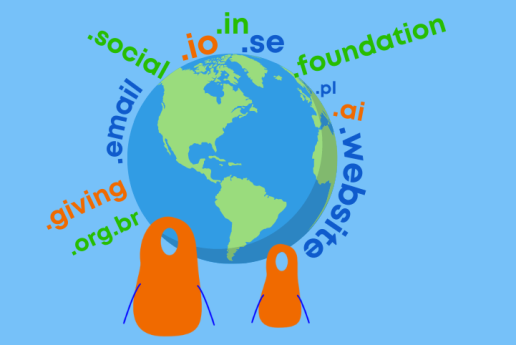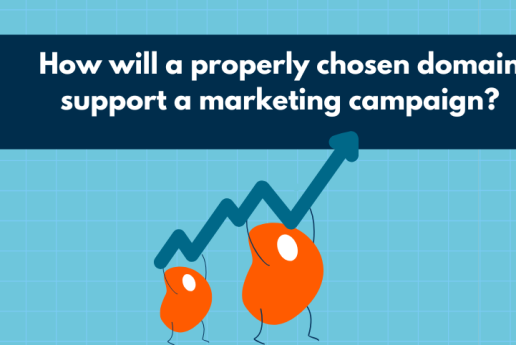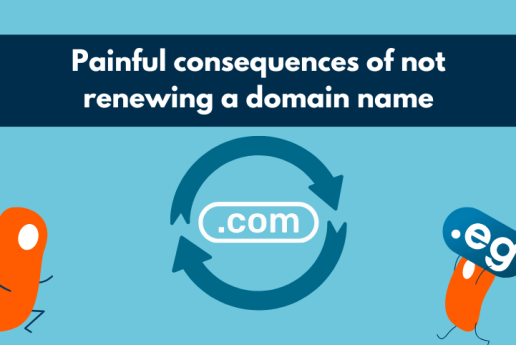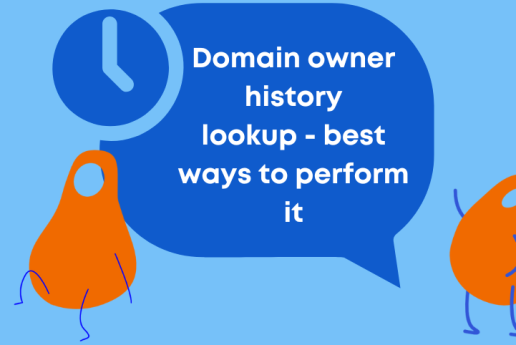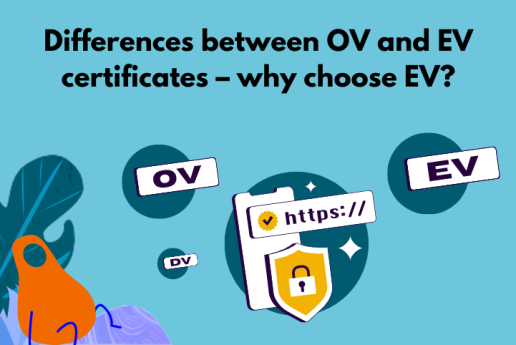How registering a domain will help you secure your brand in foreign markets

If your business only operates locally, you may be missing out on many lucrative business opportunities. It also limits your chances for development and conquering new markets – who knows, maybe Czechs or Italians will love your product?
So how to invite such business opportunities and further develop your brand? One of the first steps might be to register your domain in markets where you’re already active or plan to be.
Protect the company from unfair competition
Entering foreign markets is not only a great opportunity but also a risk. In order to be successful, you need to learn as much as possible about the conditions prevailing in a given market. Therefore, preparing well is the wisest and safest way to do it.
.pl and .com are not the only solutions, i.e. the benefits of national domains
Imagine that your company enters a foreign market. You have a great product, a comprehensive website, and a proven marketing strategy. It turns out, however, that there is already a website on this market with exactly the same name as yours. The only difference is the domain extension. Your company address ends with .pl, while the latter is the national extension of the country you planned to conquer. Which website do you think is more likely to succeed?
Naturally, you can say that nowadays people focus more on the quality of the product than on the domain suffix. However, I think that a “familiar” company will receive a warmer reception than a domain from another, “foreign” country. The consumer will surely ask questions like: I wonder if this company really understands my needs? Considering it’s a company from the other side of the world, will the support hours match my time zone? Will shipping be trouble-free and how long will it take?
An interesting example here is the Czechs, who approach websites with a domain suffix other than .cz with distrust (according to the report by Bank Polski from 08.12.2020). Their love for websites with their own national extension is so great that their search engine, seznam.cz, is more popular than google.com.
Don't limit yourself to .com and .eu
If you want to conquer Europe or even the whole world, don’t limit your company's development by only registering .eu and .com domains. Of course, they’re definitely worth it.
Internet users in other countries will have more confidence in a brand that presents itself in the local national domain, instead of just including a local language version in a regional or world domain.
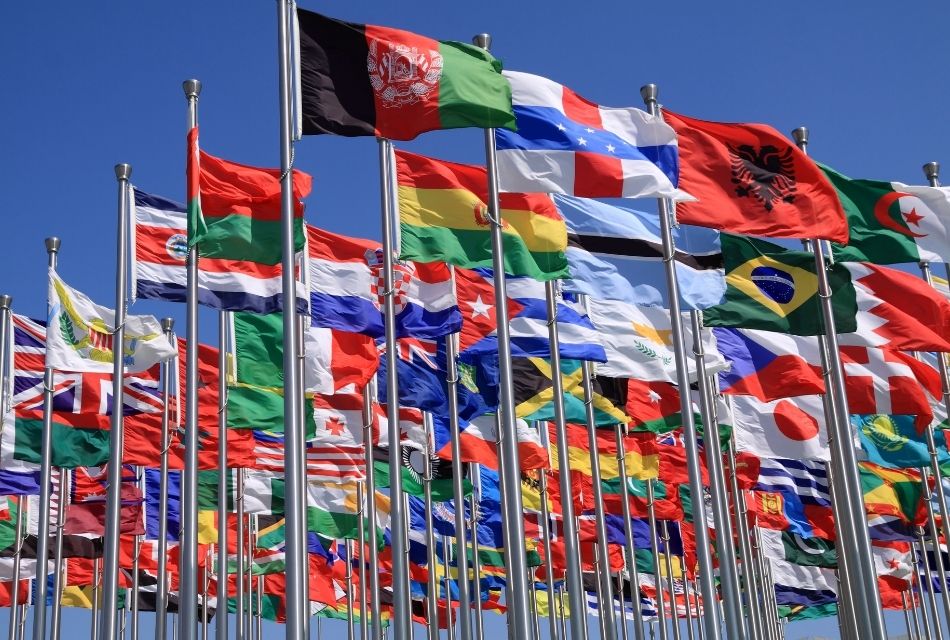
Register domains in advance
It is worth registering different domains for your chosen names before announcing that you’re entering a new market or launching a new product.
It will also be a wise move to start registering domains in the largest countries such as Germany, France, and Russia. Why? Because it’s where most domains are registered. You should also pay attention to smaller countries where the Internet and e-commerce are very popular, for example, Holland.
If you don’t secure popular domains in advance, there is a risk that a third party will intentionally register a domain you care about. You will sleep better knowing that no one can steal your name.
Reducing costs
Your wallet will definitely thank you when you register a few additional domains. Why? Because the costs of registering and maintaining such domains will be much lower than any potential legal disputes. For example, the domain of Italy, the domain of Hungary, or the domain of Belarus costs only a few dozen zlotys. You have to admit it sounds better (and cheaper!) than going to court and claiming your domain rights.
Which national domains should you register?
You already know that it’s worth registering the domain of the country whose market you are trying to conquer. You may be asking yourself if there are any domains worth paying special attention to.
It is best when you answer this question yourself. After all, you know how you want to develop your company and who may be interested in your products. However, here are some examples that I hope will inspire you to make the right choice.
If you want to reach our neighbors:
- Germany - .de
- Czech Republic - .cz
- Slovakia - .sk
- Ukraine – .ua
- Belarus – .by
- Lithuania – .lt
- Russia – .ru
You wish to set out to conquer Asia:
If you operate in the fashion sector:
If you sell electronics and telecommunications goods:
If you sell cosmetics:
If you sell books and music CDs:
Taking over a domain – the last resort
Let's go back to the situation from the previous paragraph. When entering a foreign market, your company faces an obstacle in the form of a domain owned by the competition – the same name, a different extension.
You believe in your product. You KNOW it’s good, even excellent. You have fantastic sales results, your social media channels are full of engaged fans – all of this makes you determined to take over this domain.
Learn how you can take over someone else's domain. You have three options to choose from:
- taking over the domain when it expires,
- negotiating with the current subscriber and buying the rights from them,
- entering a legal dispute settled in court.
Acquiring an expiring domain
After a domain is removed, anyone can register it on the “first come, first served” basis. You can wait for your domain to expire but take into account the risk that there are specialized sites that automatically register expiring domains on a mass scale.
Buying a domain owned by someone else
In this case, much depends on the goodwill of the current domain subscriber. You may be out of luck and encounter a person who intentionally purchased a domain with your company name – like in the above-mentioned example. Unfortunately, buying brand names that are just entering a given market is not uncommon. Retrieving such a domain can cost you a lot of time, stress, and money.
Court disputes
How you obtain a given domain legally depends on the domain suffix. It defines which country or organization governs it – meaning, which institutions will be authorized to resolve the dispute. Different countries provide different levels of brand protection.
Summary
If you want your company to develop in foreign markets, think about registering domains of the countries you are interested in.
It is worth protecting yourself against people who in bad faith register the names of brands expanding into foreign markets. Regaining domain rights can cost you a lot of money and time for legal disputes.
Registering the name of a new product or service in the domains of neighboring countries or on the entire continent in advance is now a crucial element of the development strategies of many companies.
FAQ – international domain registration and brand protection
1.Why should I register my domain in foreign markets?
Because local domains build trust with customers, protect your brand from competitors, and help you establish a strong market presence.
2.Are .com and .eu domains enough for global business?
Not always. Many users prefer national domains (like .de, .fr, .cz), which feel more local and trustworthy.
3.When should I register domains abroad?
Before announcing expansion or launching new products. Early registration protects you from cybersquatters.
4.What are the risks if I don’t secure domains in other countries?
Competitors or third parties may register them, forcing you into costly negotiations or legal disputes.
5.Can I take over a domain that is already registered?
Yes, but only by waiting for expiry, negotiating with the subscriber, or through legal proceedings – all of which can be expensive and uncertain.
I am promoting our services, products, and software. I work closely with the development and support teams, create campaigns and content, manage social media, and translate complex technical concepts into clear communication for our customers.

